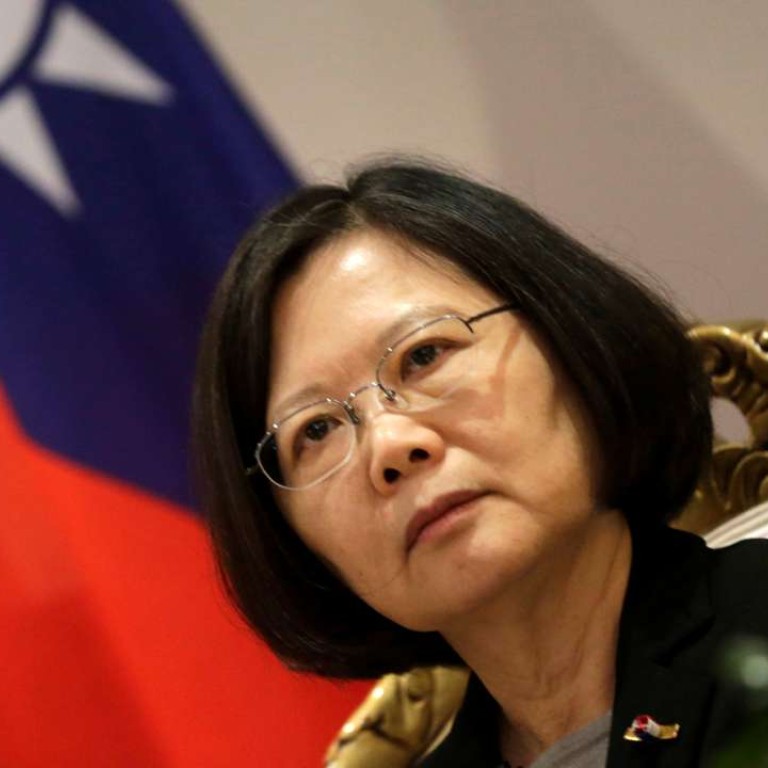
Taiwan’s President Tsai Ing-wen says structural reforms will help fix island’s slowing economy
Taiwanese President Tsai Ing-wen said on Wednesday that conventional monetary and fiscal policies had a limited impact and that structural reforms were the best way to fix the island’s slowing economy.
The former law professor and trade negotiator said Taiwan needed to strengthen the functioning of capital markets, increase domestic investment and boost innovation in five key industries.
She made the remarks at a financial forum in Taipei, organised by Bloomberg.
Tsai, 59, who assumed leadership of the export-dependent island in May, faces the task of reversing three consecutive quarters of economic contraction while following through on pledges to cap debt and balance the budget.
Her challenges include slower iPhone sales, weak petrochemical prices and strained ties with China, which has cut off communications over her refusal to accept both sides are part of “one China”.
While the government projects Taiwan’s economy will expand 1.06 per cent this year, a state-funded research institution warned in June that growth could slow to less than half that pace.

Although China still considers Taiwan a province and remains a military rival, the two saw ties improve under former president Ma Ying-jeou.
Tsai, whose Democratic Progressive Party officially supports independence, has pledged to uphold relations, but angered the mainland’s Communist Party by not accepting its one-China negotiating framework.
At the forum on Wednesday, Tsai reaffirmed Taiwan’s desire to join multilateral trade deals such as the Regional Comprehensive Economic Partnership and the US-led Trans-Pacific Partnership. The new president must contend with China’s diplomatic and economic clout as she seeks to expand ties elsewhere.
Tsai has promised a cautious approach, saying after her election that “the energy of reforms will be maximised, while the volatility of reforms will be minimalised”.

